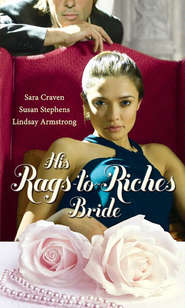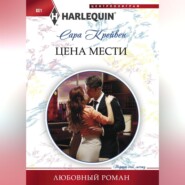По всем вопросам обращайтесь на: info@litportal.ru
(©) 2003-2024.
✖
Witching Hour
Автор
Год написания книги
2018
Настройки чтения
Размер шрифта
Высота строк
Поля
‘Well, it is the off-season,’ Mrs Pentreath said defensively.
Morgana sighed. ‘Even in the height of summer, Polzion House Hotel was never exactly an “ongoing situation”.’ She reproduced the jargon phrase with distaste. ‘People on holiday want hot baths and swimming pools, and meals which aren’t quite so dependent on the whim of the cook.’
‘Elsa’s a very good cook,’ Mrs Pentreath said reproachfully.
‘Oh, indeed she is, when the wind’s in the right quarter, or the tea-leaves have looked hopeful, or the cards aren’t presaging doom and disaster.’
‘Well, she has got the sight,’ Mrs Pentreath offered pacifically.
‘Then I wish she’d “seen” the big freeze last winter. We might have been spared some burst pipes.’ Morgana sounded defeated, and her mother said briskly,
‘No wonder you’re moping, darling. It’s so gloomy in this room, and cold too. Why on earth didn’t you make up the fire? It’s nearly out.’ She got up, bustling over to the hearth and stirring the reluctant embers with the long brass-handled poker.
Morgana shrugged. ‘His electricity. His logs. Maybe we shouldn’t waste them.’
‘I cannot believe any Pentreath would deny his own kin anything as basic as a fire to warm themselves by,’ Mrs Pentreath protested.
‘He’s a stranger to us. We know nothing about him—except his name and the fact that he was too busy in America on some business deal to come to Daddy’s funeral.’ Morgana sounded suddenly raw. ‘And since then, not a word, except this curt communication from his lawyers that he would be arriving here today.’
‘I think that must be a mistake, don’t you?’ The fire revived to her satisfaction, Elizabeth Pentreath sat back on her heels and regarded her daughter. ‘It’s getting so late. It’s almost dark, and the letter did say he would be here this morning.’
‘Perhaps his car’s broken down. Or maybe someone’s been fiddling with the signpost again, and he’s taken the wrong turning and driven straight along the cliff path into the sea.’
‘Morgana!’ Mrs Pentreath’s hand clutched at her throat. ‘You mustn’t say—you mustn’t even think such things. Do you think we should telephone the farm—get a search party organised?’
‘No, I don’t.’ Morgana shook her head. ‘He’ll turn up. Bad pennies usually do.’
‘You sound as if you don’t care.’
‘Frankly, I don’t. Do you really expect me to?’ Morgana’s voice deepened passionately. ‘This—Lyall Pentreath—he’s an outsider, an intruder. He doesn’t give a damn about Polzion. He’s probably never been anywhere near Cornwall in his life. All he knows about us will be what he’s heard from his father and grandfather, and that will probably be lies. There’s never been any love lost between the two sides of the family. The only reason he’s coming here now is to take possession of his inheritance, such as it is, lock, stock and barrel. And our feelings in the matter won’t be of the slightest concern to him.’
‘You can’t really say that, darling. You don’t know him.’
‘Exactly the point I’m trying to make,’ Morgana argued. ‘I don’t—neither of us knows him. And he doesn’t know us. But don’t you think, in the circumstances, he might have made the effort?’
‘He’s in a difficult position,’ her mother began, and Morgana snorted impatiently.
‘And we’re not? After all, we’re the ones who stand to lose everything. And he’s the winner who takes all. Well, in my book, he should have made contact before this. Long before. And the fact that he hasn’t makes him a moral coward.’
‘You’re not being very logical.’ Mrs Pentreath sounded plaintive. ‘You’re blaming him for coming here at all in one breath, and now he’s on the way, or presumably so, you’re complaining that he wasn’t here days ago.’
‘Not days. Weeks, months, years—when Daddy was alive,’ Morgana said bitterly. ‘When it might have done some good. We could all have talked—made plans, perhaps. Mummy, have you really thought what we’re going to do? He may want us to leave immediately.’
‘I can’t believe that.’ Mrs Pentreath’s tone was depressed, and Morgana gave her a swift glance which mingled compassion with faint irritation.
Elizabeth Pentreath had led a sheltered life, in spite of the fact that there had never been much money. She had always been cossetted by her husband, which was all to the good in some ways, her daughter thought drily, but not so hot when it came to attempting to make her face reality.
Now, with an air of determination, Elizabeth rose and went round the room, switching on the lamps. There was a central pendant chandelier, but this was rarely used. For one thing, it used too much electricity, and for another in the lamps lower wattage bulbs could be used which helped to disguise how shabby the carpet and furnishings really were. As the hotel guests used this room for afternoon tea, and after dinner, this was a consideration, although Martin Pentreath had always worked on the lordly ‘What’s good enough for us is good enough for them’ principle. It was a point of view which Morgana had never shared. She felt the family should have used another room, so that the drawing room could become a hotel lounge proper, where the guests could say whatever they liked without being inhibited by the presence of the proprietor and his family.
Miss Meakins might allow her eyes to fill with sentimental tears now that Martin was no longer leading the after-dinner conversation, but she had become increasingly voluble about faults in the service at Polzion House in the last two weeks, Morgana had noted drily. Not that most of the complaints weren’t fully justified. She and Major Lawson might have been attracted to Polzion because the winter rates were more competitive than similar establishments in Eastbourne or Torquay, but they still expected the usual amenities of hotel life.
And in the past few weeks, life at Polzion had become increasingly difficult. Probate for Martin Pentreath’s will had been applied for, but Mr Trevick had warned dourly that there would be little money left when outstanding debts were settled, though there were a couple of small insurance policies from which Elizabeth would benefit. Martin had made no large-scale provision for his widow and daughter, but then, as Morgana was forced to admit, he had always seemed so indestructible, like the Cornish granite his house was built on. Remembering her father, she thought it likely he had meant to leave them provided for—one day, when it could no longer be avoided, in much the same spirit as he’d stuffed unpaid bills in the bureau.
Morgana groaned inwardly as she thought of them, and she suspected her mother’s reception at the coal-merchant’s could well be the first in a long line of similar refusals. No coke meant that the ancient boiler would eventually go out altogether, and she doubted that even a further reduction in their ‘competitive terms’ would reconcile their guests to cold water, so she and her mother stood to lose their small remaining amount of direct income.
But that, she reminded herself, would be lost anyway as soon as the unknown Lyall Pentreath arrived. She imagined he would have already learned that his inheritance was being run as a small country hotel, and she found herself wondering what his reaction had been. Contempt? Probably. Anger? Almost certainly. Perhaps Miss Meakins and the Major would also find themselves dumped bag and baggage into the damp chill of an October evening.
Except, as her mother said, that the new owner would hardly be coming now. He would be here in the morning to look over his new possession in daylight. Until now, they had counted each day at Polzion as a reprieve. Now, it seemed, they were reduced to hours.
Suddenly restless, she rose to her feet. ‘I’d better go and see about tea. It’s past the time already.’
‘I expect Elsa has been waiting, dear, for your cousin to arrive.’
‘My cousin.’ Morgana repeated the words almost incredulously. It was the first time her mother or anyone else for that matter had used them in relation to Lyall Pentreath. It seemed alien and uncomfortable to think that this stranger was actually of her blood, even though the relationship between them was a remote one. Because of the quarrels and the separation between the two sides of the family, the other Pentreaths might as well not have existed as far as she was concerned.
‘I wish they hadn’t,’ she thought fiercely, digging her nails into the palms of her hands as she left the room. ‘I wish none of them had ever been born.’
The passage leading to what in happier days had been known as the servants’ quarters was draughty, and Morgana shivered a little as she made her way down it. But the kitchen was warm, thanks to the big old-fashioned range—which also burned coke, she remembered dismally—on which Elsa produced delectable meals when she was in the mood.
What her mood was like today was anybody’s guess. Breakfast and lunch had been passable, but there were no noticeable preparations for dinner, Morgana noted sinkingly. Instead, Elsa was sitting at the kitchen table staring down at a worn pack of cards spread there.
‘Come in, maid, and shut the door,’ she said absently without looking up.
‘We were wondering about tea,’ said Morgana, unable to resist a curious glance down at the cards as she passed the table.
‘’Tes all ready, and the kettle’s on the boil.’ Elsa was built on generous lines, and her dark hair, liberally streaked with grey, was pinned back from her face with an incongruous selection of plastic hairslides in various colours and designs. Green butterflies and pink poodles were in favour that particular day, forming an unusual contrast to her bright blue overall, safety-pinned across her massive bosom. ‘And I’ve made a batch of scones along with the cake,’ she added sombrely.
‘They look lovely.’
Elsa snorted. ‘Can’t go by looks. They’m sad, same as this ‘ouse is sad. Same as these cards.’ She gestured at them. ‘Grief and misery, pain and woe, my lover—that’s what’s in store. And a fair man,’ she added as something of an afterthought.
‘Well, that’s something,’ said Morgana. ‘At least it won’t be Cousin Lyall. Pentreath men are always dark.’
‘That’s as mebbe,’ Elsa said with dignity. ‘But there b’ain’t no dark man coming into your life, maid, not so far as I can see.’
‘Then perhaps he really has driven over the cliff,’ Morgana said cheerfully. ‘Make the tea, Elsa darling, while I put the food on the tray.’
Whatever secret sorrow the scones might be nursing, they looked almost sprightly to her, she thought, as she picked up the plate, and the saffron cake which was one of Elsa’s specialities was golden-brown and mouthwatering.
‘About dinner—–’ she began tentatively.
‘Funny ol’ bit of meat the butcher sent.’ Elsa was at the range, busy with teapot and kettle. ‘Calls it beef, but I dunno. Looks tough as ol’ boots to me.’
‘Oh dear!’ Morgana wondered privately whether the butcher was taking some kind of subtle revenge for an unpaid bill she hadn’t discovered yet. ‘Do you suppose pot-roasting would make it more tender?’
‘I daresay.’ Elsa set the teapot on the tray with an uncompromising thud. ‘But I don’t need any young maid to teach me my business in my own kitchen.’
‘Of course not, Elsa darling.’ Morgana’s smile held its first real hint of mischief for some time.













